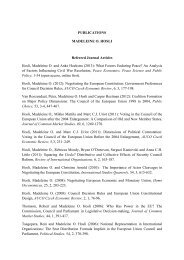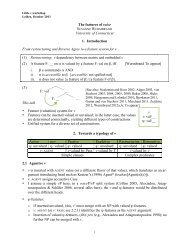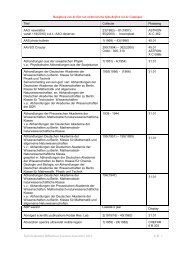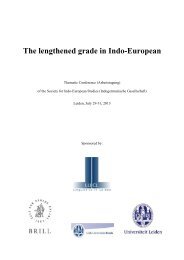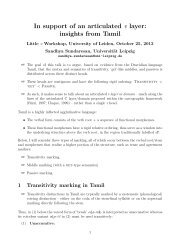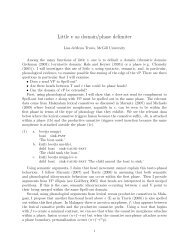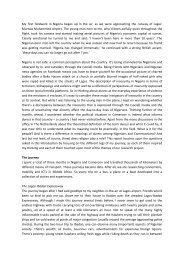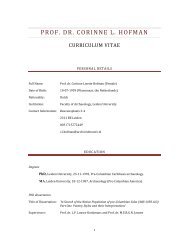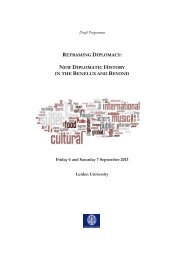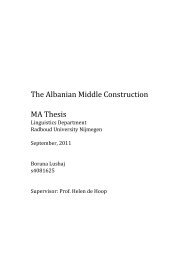LUC The hagUe ProfiLe 1
LUC The hagUe ProfiLe 1
LUC The hagUe ProfiLe 1
Create successful ePaper yourself
Turn your PDF publications into a flip-book with our unique Google optimized e-Paper software.
ART. 1.4 - FORM OF THE DEGREE PROGRAM<br />
<strong>The</strong> degree program is full-time and residential.<br />
ART. 1.5 - MAJOR<br />
<strong>The</strong> following majors are offered at <strong>LUC</strong>:<br />
Global Justice; Human Interaction; International Development; Sustainability;<br />
World Politics, Political Arts. Combined majors (in which students select coherent<br />
pathways through two of the regular majors, including relevant methodology<br />
courses, leading to more than the normal 80 credits designated for the major)<br />
and double majors (in which students take two full majors, totalling 160 credits)<br />
are possible in exceptional circumstances, and only with the special approval of<br />
the Examinations Committee, but are not recommended.<br />
ART. 1.6 - MINOR<br />
Students may elect to take a minor (normally 30 credits) in a field different from<br />
their major. <strong>The</strong> coherence and quality of this minor will be validated by the<br />
Examinations Committee prior to graduation.<br />
Minors are not compulsory.<br />
ART. 1.7 - STUDY LOAD<br />
<strong>The</strong> normal study load of the programme is 180 credits. <strong>The</strong> first year has a study<br />
load of 60 credits and is an integral part of the programme.<br />
ART. 1.8 - START OF THE PROGRAMME; UNIFORM STRUCTURE OF THE<br />
ACADEMIC YEAR<br />
<strong>The</strong> programme aims to start on 1 September of each year. <strong>The</strong> programme<br />
is based on the uniform structure of the academic year; it is divided into two<br />
semesters of two blocks each.<br />
ART. 1.9 - END OF THE PROGRAMME; BACHELOR’S EXAMINATION<br />
1. <strong>The</strong> programme ends with the Bachelor’s Examination, which marks the<br />
completion of P2.<br />
2. <strong>The</strong> Examinations Committee decides on the result of the bachelor’s<br />
examination as soon as the student has submitted satisfactory proof of<br />
examinations s/he passed and the academic level thus acquired.<br />
3. Prior to deciding on the result of the Bachelor’s Examination, the Examina-<br />
74 aCaDeMiC rULes aND regULaTioNs<br />
tions Committee has the power to examine the student’s knowledge with<br />
regard to one or more courses or aspects of the degree programme, if and<br />
insofar as the results of the examinations concerned give cause to do so.<br />
4. <strong>The</strong> following conditions must be met to pass the Bachelor’s Examination:<br />
the overall average grade (GPA) is equal to or exceeds 6.0; the student is in<br />
honourable and good financial standing with the college.<br />
ART. 1.10 - DEGREE<br />
1. Most students with a major in World Politics, Global Justice, Human Interaction,<br />
International Development, or Political Arts who successfully passed<br />
the Bachelor’s Examination are awarded the degree of ‘Bachelor of Arts’.<br />
2. Most students with a concentration in Sustainability (or with the necessary<br />
components of other majors) who successfully passed the Bachelor’s Examination<br />
are awarded the degree of ‘Bachelor of Science’. It is possible for<br />
students to qualify for the BSc in other majors, provided that they complete<br />
the appropriate courses.<br />
3. Students with a specially designed single major, combined major, or double<br />
major approved by the Examinations Committee and who successfully<br />
passed the Bachelor’s Examination are awarded the degree of ‘Bachelor of<br />
Arts’ or ‘Bachelor of Science’ depending on the profile of the courses followed.<br />
4. Students who have successfully completed the requirements of a minor, to<br />
the satisfaction of the Examinations Committee, will also receive the qualification<br />
of an additional, minor specialisation.<br />
5. <strong>The</strong> degree certificate of the Bachelor’s Examination states the degree<br />
awarded and the <strong>LUC</strong> supplement states the major and minor (if applicable).<br />
6. <strong>The</strong> following degrees will be awarded:<br />
• Ordinary honours 6.0 - 6.4<br />
• Cum Laude 6.5 - 7.4<br />
• Magna Cum Laude 7.5 - 8.4<br />
• Summa Cum Laude 8.5 - 10<br />
<strong>The</strong> final classification will be based on the average grade upon graduation,<br />
calculated over the second and third year of study (ie. classification is for P2).<br />
aCaDeMiC rULes aND regULaTioNs 75





